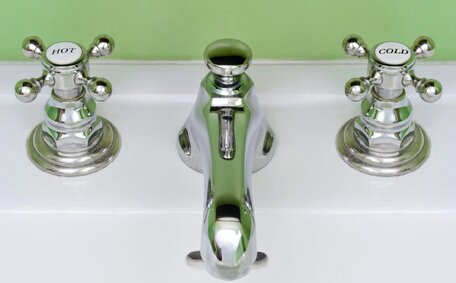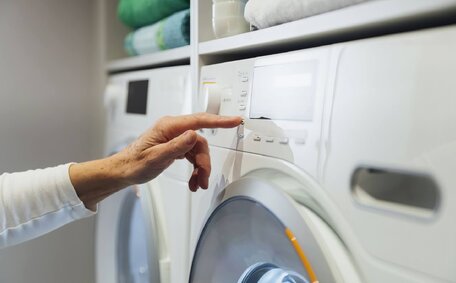Introduction to Hot Water System Lifespans
Understanding the lifespan of a hot water system is crucial for Australian homeowners, since it’s a vital household appliance used daily. Planning ahead for maintenance and potential replacement down the track prevents unexpected, expensive breakdowns and ensures you know how long your access with your hot water system will serve your needs.
Hot water system lifespans vary based on model, brand, water quality, usage, and maintenance. The average lifespans of common water systems found in Australian homes are as follows:
- Electric storage
- Gas storage
- Heat pump
- Solar
- Tankless/Instantaneous
This article details the average lifespans of different hot water systems, provides maintenance tips to enhance longevity and offers advice to homeowners on selecting the right system.
Average Lifespan by Hot Water System Type
The Average Service Life of Common Hot Water Systems
The average lifespan hot water service types typically offer is:
- Electric hot water system tanks: between 8 12 years
- Gas water heater storage tanks: 10-15 years
- Heat pump systems: 10-15 years
- Solar hot water systems: 15-20 years
- Continuous flow tankless systems: 15-25 years
Yet, several factors can significantly impact these lifespans.
Key Factors Influencing Lifespan
There are several key factors that impact the lifespan of a hot water system, ultimately determining whether it lasts closer to the minimum or maximum expected years of service.
Water Quality and Chemistry
Hard water containing higher levels of calcium, magnesium and silica minerals can cause scale buildup in pipes and heating elements.
Usage Patterns
Frequent and heavy hot water usage imposes more wear on parts like heating elements and thermostats. Intermittent use can significantly prolong the life of your water heater system. Continuous use in tankless systems puts more strain on components.
System Type
As outlined initially, the life expectancy water heaters like storage electric and gas systems typically range from 8-15 years. Newer technologies can help a water system last longer, with some operating efficiently for up to 25 years. Additionally, energy-efficient models tend to have longer lifespans.
System Location
The installation environment impacts how long your hot water system last, and poor placement could mean reduced efficiency. Indoor units can last up to a longer system duration.
Professional servicing ensures even outdoor units withstand harsh climates. Models in wet areas prone to flooding or leaking pipes degrade faster.
Brand and Build Quality
It’s important to note that inexpensive, low-quality hot water systems often fail prematurely. Stick with established brands offering extended warranty periods like Rheem or Rinnai when selecting a new one for your home. Better insulation, anodes and durable internal components increase lifespan and extend the warranty period.
Effectively managing these factors can keep your system within warranty coverage.
Maintenance Tips to Prolong Lifespan
Correctly performed regular maintenance can extend a system’s overall lifespan, preventing premature failures and reducing long term costs. Here are key tips for maintaining different types of systems:
All Systems
- Flush sediment buildup annually by draining 1-2 buckets from the hot water tank of your system
- Check your hot water unit’s valves, pipes, fittings and connections for leaks/corrosion. Replace affected parts.
- Inspect electric hot connections ensuring no loose wires or deterioration
Storage Tanks
- Inspect anode rods every 2-3 years and replace when eroded over 50%
- Replace heating elements after 5-8 years or earlier if frequently tripping electrics
- Check insulation, replacing if saturated or mouldy
Tankless Systems
- Descale the heat exchanger and flush feeder pipes to remove mineral buildup
- Clean/replace water filters if pressure drops indicating blockage
- Check burners and igniters for soot buildup obstructing gas flow
Maintenance can be expertly handled by professionals such as Hunters Hill Plumbing, whom we highly recommend. professionals provide valuable early diagnosis and top-notch service, through specialist servicing, maximizing your system’s lifespan and saving money compared to emergency breakdown repairs later.
Well-maintained systems can function efficiently for two decades, ensuring uninterrupted hot water supply. Proactive maintenance is key to reliable hot water service.
When to Consider Replacing Your Hot Water System
Several signs indicate when it’s time to replace your water heater:
- Frequent breakdowns and repairs. Frequent repairs may indicate the need for a new water heater.
- A consistent decline in hot water supply suggests system failure.
- Visible damage like substantial rust, corrosion, or leaks.
- Significant decrease in water pressure.
- Higher energy bills from an inefficient system.
- Old age - most systems last 8-15 years on average.
Weigh the costs of ongoing repairs against the benefits of a new system when deciding whether to replace your hot water heater. New systems may pay for themselves within 5-7 years due to enhanced energy savings and reliability, leading to customer satisfaction.
For advice tailored to your plumbing needs, contact our team at Hunters Hill Plumbing on 1300 349 338 or jobs@huntershillplumbingservices.com.au. We can assess the condition of your hot water system your current system, ensure that any potential new installation complements all your household needs, and determine whether replacement or further repairs are the better system your option.
Choosing the Right Replacement Hot Water System
Choosing the right replacement for a failing system is critical for optimal efficiency and longevity.
Consider Energy Efficiency
Choose energy-efficient systems, such as gas hot water systems, to save on utility bills. How long do hot water systems like heat pump hot water systems and solar last are among the most efficient options. High star rated gas or electric storage tanks can also improve efficiency over older models.
Determine the Right System Type
Think about your household’s new hot water system usage, fuel type availability and budget. Storage electric and gas hot systems work well for budget conscious light to medium usage households. Solar systems do hot water handling for medium demand efficiently but come with a higher upfront cost.
Systems that pump water effectively, such as heat pumps, suit medium usage households. Instant gas systems that pump hot water cater well for high demand.
Size the System Well
An over or undersized system wastes money over time. Our experts at Hunters Hill Plumbing can assess your home’s hot water requirements and recommend the appropriately sized replacement.
Choose Reputable Brands
Consider brands like Rheem, Rinnai, Vulcan, and Dux for a new hot water system, as they offer extended warranties. This approach helps avoid premature system failures and reduces the need for repairs.
For advice on the right hot water system solution for your home and budget, call our team on 1300 349 338 or email jobs@huntershillplumbingservices.com.au.






